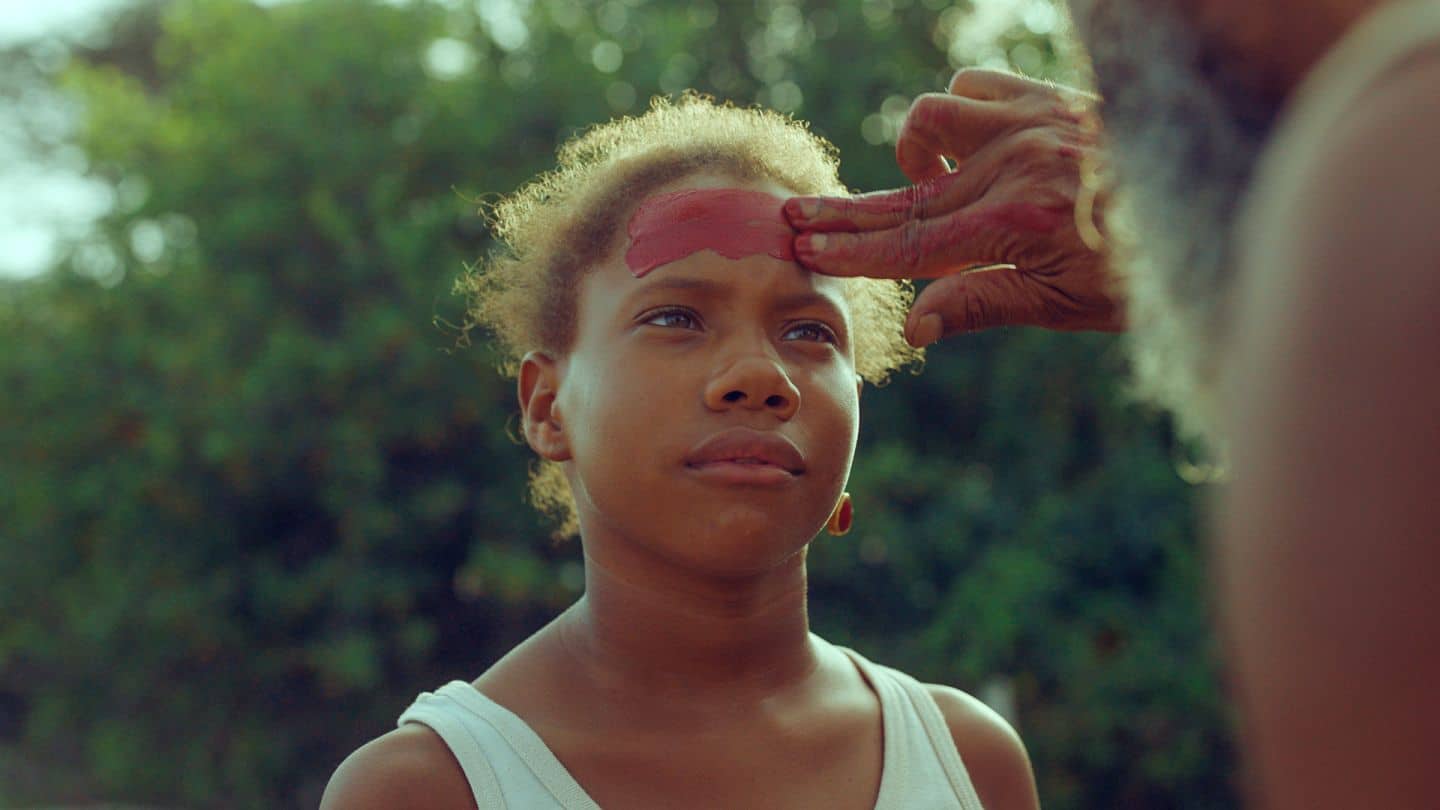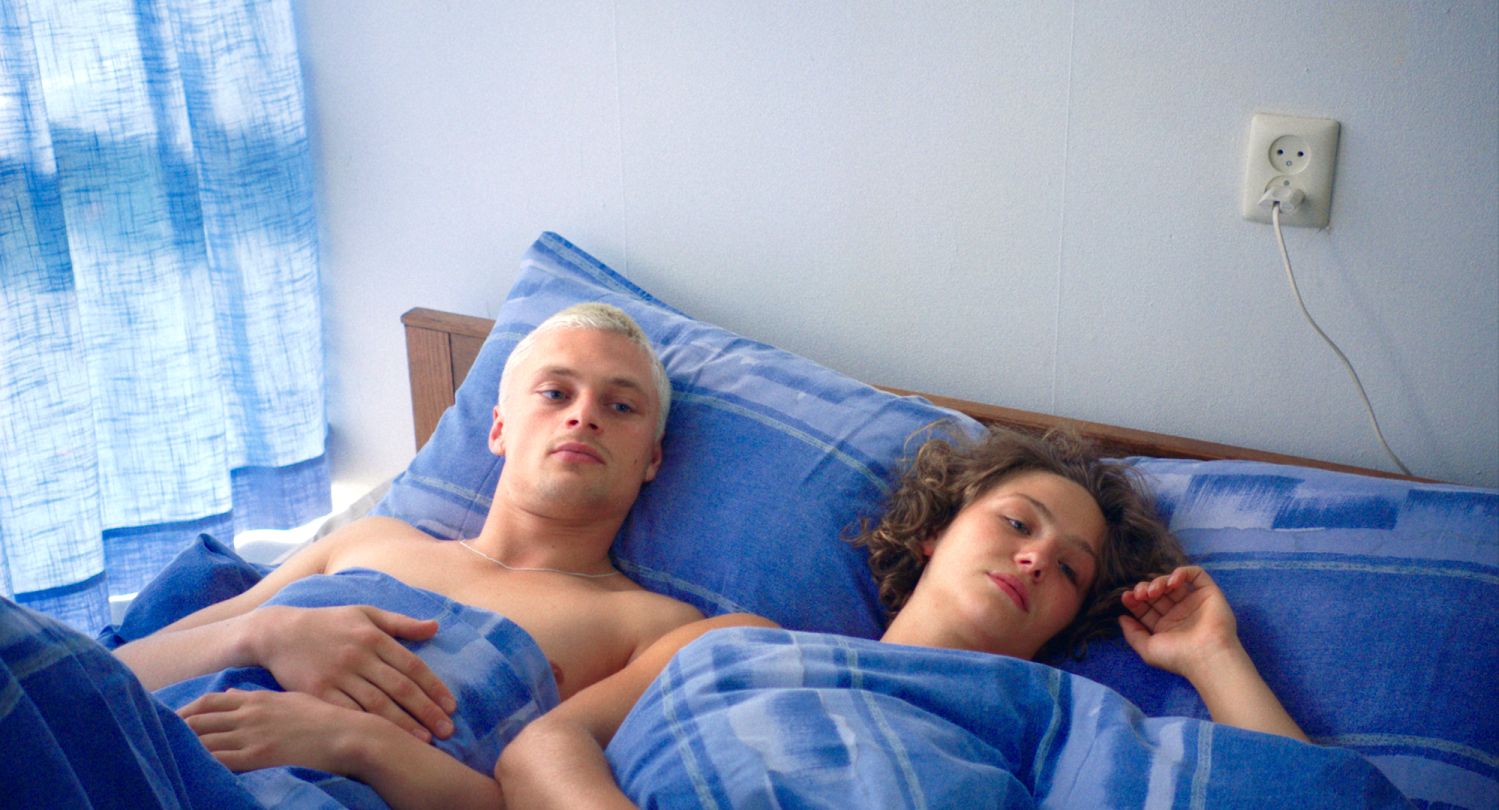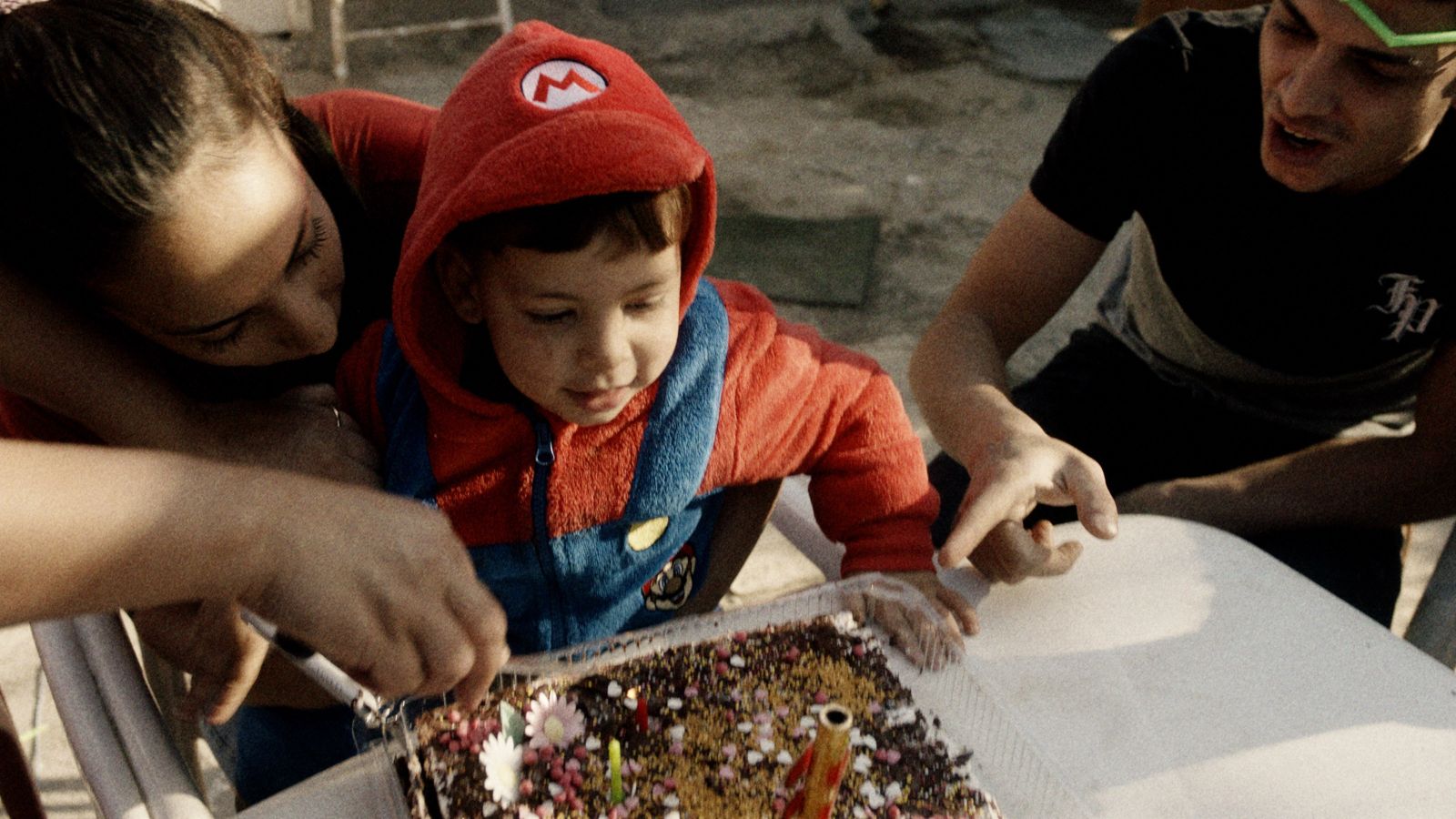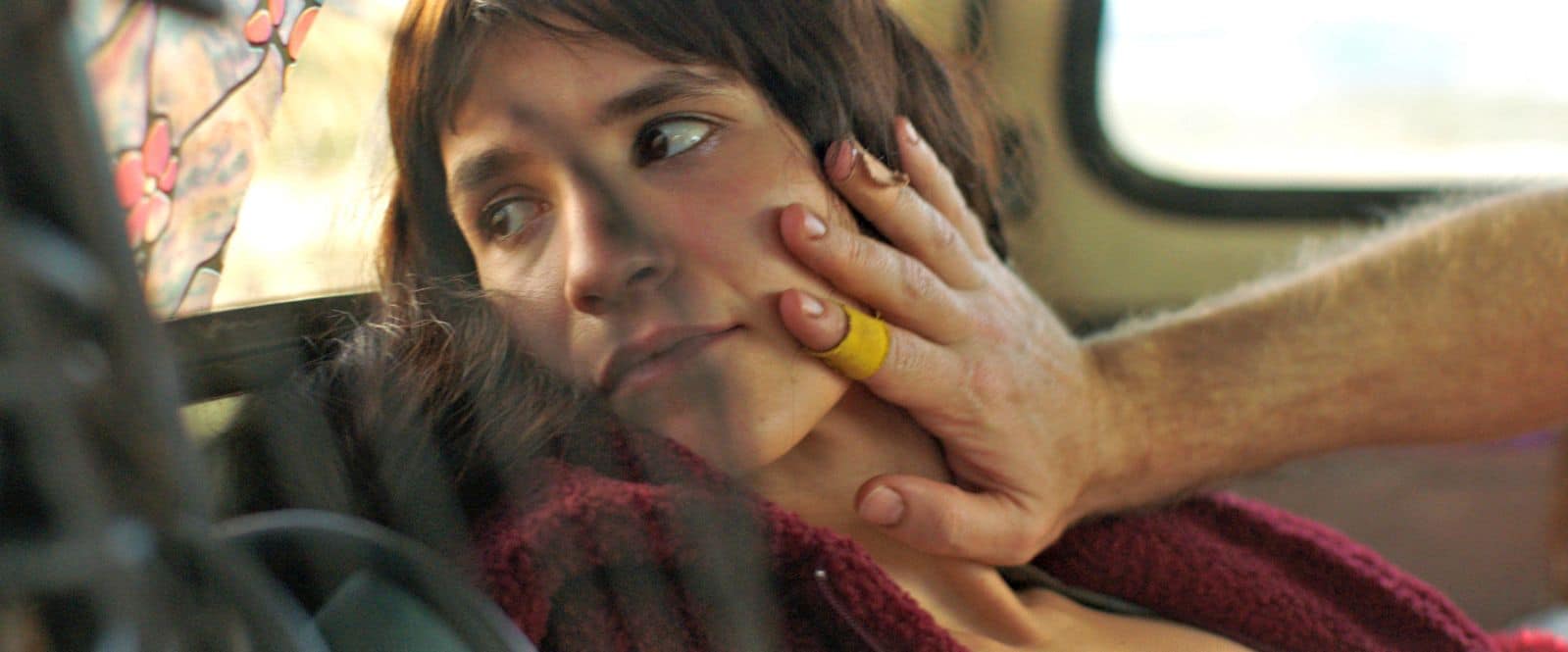In this corona time, it swarms Dutch Film Festival out across 100 theatres nationwide. Many of the offerings can also be seen online, including the Directors' Forum for groundbreaking films. A godsend for home viewers. We speak to the new Forum curators who went in search of makers with guts and their own vision.
This fortieth edition of the Netherlands Film Festival, which kicks off on 25 September, is a special one. And not just because of the anniversary, the retrospective of 40 years of Golden Calfs or the online offer. To also spoil film lovers who love the cinema experience, there are eight NFF titles premiering in the festival week not only in Utrecht, but also in some 70 other cities. 'The NFF comes to you!', the website announces monotonously. That too can be called groundbreaking.
Opening with imagination

Also the opening film Buladó, with which this year's NFF gets off to a strong start, will be shown across the country. This Curaçao-set, magical-realist yet deeply moving family story is a rich, multi-layered production that says, as it were: this is how Dutch film can be too. Eché Janga, who already stood out in 2014 with his debut Helium, creates a world of its own that nevertheless feels very close. A world where opposites find each other. Rationality alongside spirituality, life and death, poetry and sobriety. With a wonderfully brisk lead performance by Tiara Richards as 11-year-old Kenza. A girl who has to find her own way between her grandfather's mysticism and her father's gruff closed-mindedness. A story about life, about connection and liberation. This is pushing boundaries with imagination.
Then it is only a small step to the Directors' Forum, the competition programme for groundbreaking work. That Buladó not included in that programme has only a practical reason, Forum co-conveners Hugo Emmerzael and Inge de Leeuw assure me in a conversation via Skype.
Refresh
That, contrary to what you sometimes hear, there are indeed adventurous Dutch filmmakers who dare to experiment and have a creative vision the 12 selected titles prove. Directors who seek new paths or incite discussion. Boris Gerrets shows in Lamentations of Judas Angolan veterans reenact a Bible story to confront their demons. Isabel Lamberti, in the soberly impressive La última primavera the social realist genre a refresh. And in Rotterdam, Marina Meijers screened the documentary, as intimate as it is raw Carousel About disadvantaged young men.
The first Forum was set up in 2015 by film critics Dana Linssen and Jan Pieter Ekker. At the invitation of the then festival director Willemien van Aalst and based on an idea by Emile Fallaux and Jos Stelling. For the current sixth instalment, the Festival handed over the baton to Hugo Emmerzael (editor of the Filmkrant, among others) and programme maker and Impact project leader Inge de Leeuw.
Inspiring
For Hugo, the Directors' Forum has always been his favourite festival event in recent years. He finds the focus on makers' ideas and the exchange that takes place during the Forum important for Dutch film culture. "Very inspiring. Very special also that I now get to contribute to that myself."
Inge, asked by Hugo to participate, is precisely a newcomer to the Dutch Film Festival. "I was always in Toronto and New York around that time, but when Hugo told me about the Forum, I got curious," she laughs. "Very interesting that it's precisely about authorship and seeking depth. Plus that we can now experiment with an online form. So alongside the screening of the films, podcasts with conversations with the makers."
Playing with media
Asked about the selection criteria, Hugo notes that he and Inge mainly looked for work that demonstrates a powerful idea. That can be essayistic or engaged or aesthetic, it doesn't matter. But there has to be a clear vision.
As an example, he cites The Undercurrent by visual artist Rory Pilgrim, who won the Prix de Rome Visual Arts from the Mondriaan Fund with it last year. A project halfway between activist cinema, documentary, music video and art film. About ten young climate activists in Idaho who gradually turn out to have other issues as well. A film full of issues in the world today.
Inge underlines that The Undercurrent also steps outside the usual boxes with its presentation form. The project was an installation at the Stedelijk Museum, and can now be seen as a film.
We see this playing with different media very nicely at #VlostJonesWillWin. How do young people use their smartphone, camera and microphone in their online battle against the establishment? This will be presented as an installation in the Library, can be experienced as a live event in BAK (Utrecht's platform for contemporary art) and seen online as a 50-minute video. Also Nerd_Funk: Phase 1, a kaleidoscopic exploration of digital culture, is not limited to one medium.
Docu and fiction

Our motherland by Shamira Raphaëla is a portrait of a far-right political leader. Not very innovative in terms of form, but the powerful connections she makes with archival material and the layers she adds are what Hugo calls incredibly interesting. Moreover, it is a film is that can make for good conversation. That too played a role in the selection. Those who want to hear what Raphaëla has to say can click through to the podcast.
It strikes me that most of this year's Forum titles are documentaries or films with a strong connection to them. Hugo agrees, but adds that it was not deliberately targeted. "The Dutch documentary tradition is strong now. Perhaps the lower budgets required for this also give more freedom to experiment."
As an example of such an experiment at the intersection of docu and fiction, Inge mentions Drama Girl by Vincent Boy Kars. In it, a young woman re-enacts scenes from her own troubled life with the help of actors.
La última primavera

Two particular feature films are La última primavera of Isabel Lamberti and Kala Azar by Janis Rafa. The first one in particular impressed me a lot. In it, real residents of a Madrid slum play out what might happen if their houses are demolished. A speculative story. Hugo calls it an understated project with great effect. Mainly because it makes you think about the way the film was made, about the relationship of trust with those involved and the thin dividing line between fiction and documentary.
Kala azar

Janis Rafa is a visual artist working with Kala azar makes her film debut. A mysterious and intriguing drama about a young couple who take care of dead animals. In doing so, she creates a world all her own, with its own rules and symbolism. At the Rotterdam Film Festival Kala azar The Prize of Dutch Film Criticism.
Kala azar, a Dutch-Greek co-production, is not the only Forum title to move outside the Netherlands. We already mentioned Lamentations of Judas and La última primavera. They call me Baboe and the allegorical drama Watamula, which, like opening film Buladó set in Curaçao, are two other titles that demonstrate a broadening of outlook. Hugo suspects that this edition is perhaps the most internationally oriented Forum issue. In that way, too, boundaries are being pushed here.
The design of the Forum programme, largely online, is itself a bit of an experiment. In addition to the films screened, there are online conversations with the makers, in the form of podcasts that remain available throughout the festival period. There is also a slow-chat with the makers, where viewers can key in their own questions at any time.
The Dutch Film Festival, online and on location, will take place from 25 September to 3 October.
For the Directors' Forum, see forum.filmfestival.co.uk or www.filmfestival.nl/forum
The NFF Festival premieres, including La última primavera, in more than 70 cities can be found here.
La última primavera enters cinemas after the festival on 29 October.
Opening film Buladó gets its theatrical release as early as 1 October.
